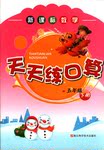At just 18 years old, Canberra student Lochie Ferrier has already conducted research in a frontier field — aerospace engineering. Aerospace engineering is the primary of engineering concerned with the science and technology of aircraft and spacecraft.
In 2014, he was one of 80 high school students worldwide who a six-week science and engineering program at MIT. During the program, he was by the institute’s scientists, and developed a method to identify inactive satellites. This method, called OASIS, is designed a way to help manage space debris(碎片), which operating satellites.
“One solution to this problem is a robot that can gather pieces of space debris and store them in orbit,” he says. “These pieces could be to new satellites later, thus the costs and launch weights of new satellites.” However, satellite identification technology would be needed for this solution, and that’s what Lochie is working on. “I hope this method would be put into practice in the near future, in the next 10 years,” he says.
Lochie has made the of the Young Innovators category of the Australian Innovation Challenge Awards with his OASIS. This category is open to students aged 21 years or and carries a $ 5,000 prize. If he won, he would use the money to help fund research into OASIS. “My plan for using the money would be to try to use materials which could stand up to the environment of space,” he says.
He is also considering how to the technology to organizations such as NASA and satellite manufacturers.
Lochie’s in aerospace engineering was aroused by the big dish antenna(碟形天线)at NASA’s tracking station near Canberra,which he visited in his early teens. He said his software design and development teacher at Canberra Grammar School him, too. “He taught me valuable project management and skills which I applied to OASIS.”
Lochie has been attending Canberra Grammar School and will soon exams for admission to universities. He his time between schoolwork, his personal projects such as OASIS and the development of apps, rock climbing, and playing classical violin. The teenager is well on his way to realizing his sky-high ambition.
1.A. principle B. presentation C. branch D. criterion
2.A. brought in B. participated in C. set up D. backed up
3.A. guided B. criticized C. surprised D. changed
4.A. in B. for C. with D. as
5.A. follows B. threatens C. splits D. maintains
6.A. recycling B. repairing C. creating D. launching
7.A. switched B. transformed C. attached D. returned
8.A. increasing B. reducing C. balancing D. covering
9.A. optional B. temporary C. reliable D. theoretical
10.A. imagine B. say C. suppose D. consider
11.A. plans B. finals C. competitions D. goals
12.A. under B. beyond C. more D. above
13.A. basic B. further C. academic D. independent
14.A. extreme B. pure C. dark D. friendly
15.A. adapt B. forward C. market D. apply
16.A. influence B. investment C. information D. interest
17.A. inspired B. served C. sponsored D. promised
18.A. join B. sit C. hold D. prepare
19.A. devotes B. spends C. separates D. divides
20.A. instructive B. competitive C. technical D. typica
 口算小状元口算速算天天练系列答案
口算小状元口算速算天天练系列答案 天天练口算系列答案
天天练口算系列答案
